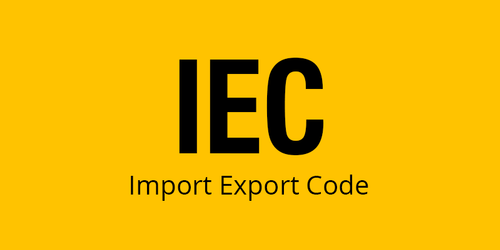In today’s global marketplace, expanding beyond borders is no longer just an option—it’s a necessity for growth. Whether you’re a budding entrepreneur or an established business owner, entering the world of international trade opens up new opportunities. However, one crucial requirement stands between you and global trade: the Effective Import Export Code (IEC).
At Vmaayan Tax & Financial Solutions, we specialize in helping businesses seamlessly obtain their IEC and stay compliant with foreign trade regulations. This guide explains everything you need to know about the Import Export Code—its purpose, application process, and how we can help you navigate it with ease.
What is an Import Export Code (IEC)?
The Import Export Code (IEC) is a 10-digit registration number issued by the Directorate General of Foreign Trade (DGFT) under the Ministry of Commerce, Government of India. It is mandatory for any business or individual looking to import or export goods and services from India.
Without an Effective Import Export Code, you cannot legally engage in cross-border trade, nor can you claim certain government benefits or incentives related to exports.
Why is IEC Important for Businesses?
Here are some of the key reasons why having an IEC is essential:
1. Mandatory for International Trade
IEC is legally required for businesses to import or export goods or services outside India.
2. Customs Clearance
Importers need an IEC to clear shipments through customs, and exporters need it to send goods overseas and receive payments.
3. Claim Export Incentives
Businesses with IEC can avail various government schemes such as MEIS (Merchandise Exports from India Scheme) and RoDTEP (Remission of Duties and Taxes on Export Products).
4. No Renewal Needed
Unlike other registrations, the IEC is issued for a lifetime and does not require renewal—making it hassle-free once obtained.
Who Needs an IEC?
The following entities must apply for an IEC:
Individuals or sole proprietors importing/exporting goods
Businesses involved in international trade (LLPs, partnerships, private/public limited companies)
E-commerce sellers dealing with foreign customers
Service exporters, especially those receiving payments in foreign currency
Even freelancers and consultants offering services overseas may require IEC to receive international payments smoothly.
How to Apply for an Import Export Code?
Here’s a simplified breakdown of the IEC registration process:
Step 1: Prepare Required Documents
To apply for an IEC, you’ll need:
PAN card of the applicant (individual or business)
Identity & address proof (Aadhaar, passport, voter ID, etc.)
Business registration proof (if applicable)
Bank certificate or a cancelled cheque from the applicant’s bank account
Digital signature (DSC) may be needed for companies or LLPs
Step 2: File Online Application on DGFT Portal
You must fill out the IEC application form (ANF 2A) online via the DGFT portal.
Step 3: Payment of Government Fee
A nominal fee (currently ₹500) is charged for IEC registration.
Step 4: Receive IEC
Once the application is verified and approved, you’ll receive the Import Export Code in a digital format, usually within 1–3 working days.
How Vmaayan Tax & Financial Solutions Can Help
Navigating government portals and documentation can be confusing, especially for new entrepreneurs. At Vmaayan, we offer end-to-end IEC services that include:
Document preparation & validation
Filing your IEC application accurately
Resolving any technical or compliance issues
Assisting with updates or modifications to IEC
Advisory on foreign trade compliance & benefits
Our team ensures a smooth, error-free process so you can focus on growing your business globally without administrative stress.
Common Mistakes to Avoid
When applying for IEC, many applicants unknowingly make errors that delay approval or cause compliance issues later. Avoid these pitfalls:
Submitting incorrect or mismatched documents
Using a personal bank account for a business IEC
Applying under the wrong category (individual vs. business)
Ignoring IEC update requirements post-GST implementation
Let our experts handle the complexities while you stay focused on your business goals.
Final Thoughts
The Import Export Code (IEC) is more than just a regulatory requirement—it’s your business’s passport to the global market. Whether you’re planning to export Indian textiles or import international machinery, getting your IEC is the first and most important step.
At Vmaayan Tax & Financial Solutions, we’re proud to support India’s growing business community with reliable, professional tax and compliance services. From IEC registration to GST, tax planning, and financial consultancy—we’re your trusted partner in business growth.








